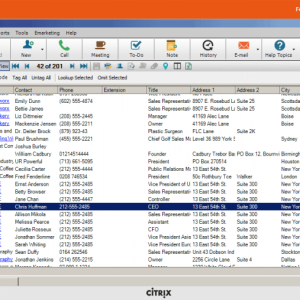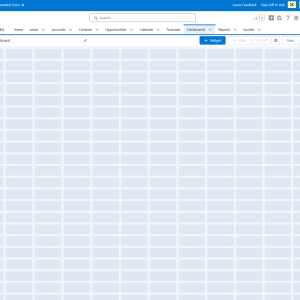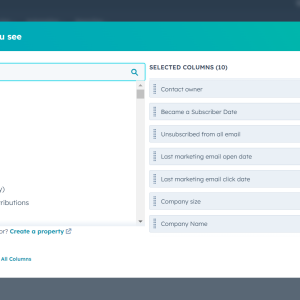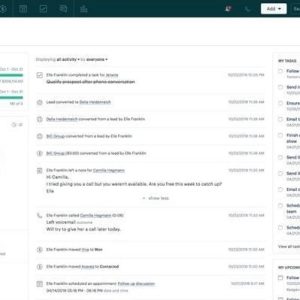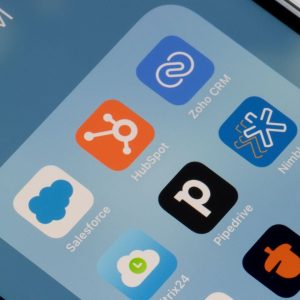When it comes to customer relationship management (CRM) software, two popular options that often come up are Zendesk and HubSpot. Both platforms offer an array of features aimed at helping businesses manage their customer interactions effectively. However, one crucial aspect that often plays a significant role in the decision-making process is the price and the features they offer for that price. In this article, we will compare and contrast the pricing structures and features of Zendesk and HubSpot to help you determine which CRM platform best fits your business needs and budget.
Our research shows that HubSpot is better than Zendesk when it comes to marketing, but Zendesk Sell offers a better option for sales teams, with each providing more features for those specific industries.
You are viewing: Zendesk vs HubSpot – Price and Features Comparison
We use a robust set of research metrics to evaluate CRM software like HubSpot and Zendesk, considering important factors like features, pricing, integration, and customer support to rate and rank these platforms.
To fully understand how these two CRM software options compare with each other, read on for in-depth information about Zendesk and HubSpot, as well as other providers in the market. You can also check out our dedicated CRM comparison page to get a quick peek at the best providers out there.
Take a look at how the industry-specific plans and hubs from Zendesk and HubSpot compare with each other below:
Zendesk vs HubSpot: Key Differences
Zendesk and HubSpot are two of the best CRM options out there. Our research found that both provide some of the best marketing and sales features, respectively, that are available today.
Still, there are some major differences between the two CRM providers, including:
- HubSpot offers an excellent free plan and Zendesk does not
- HubSpot offers more features than Zendesk
- Zendesk is more affordable than HubSpot
- Zendesk Sell is better for sales teams than HubSpot
- HubSpot is better than Zendesk for marketing businesses
- Zendesk is better than Zendesk for customer service businesses
In essence, HubSpot is geared towards larger businesses that may need to scale in the future and have a bit more room in the budget for a hefty investment. Zendesk, on the other hand, is low-cost option that offers specific features for sales and customer service teams.
Zendesk
As we mentioned earlier, Zendesk is a low-cost option aimed at smaller businesses in the sales and customer service industries. Both of its two options, Zendesk Service and Zendesk Sell, provide affordable plans along with its sleek, responsive interface. Even better, Zendesk offers a lot of customizability thanks to its open API. In fact, our research found that the Zendesk Sell platform was the best CRM for easily managing customer databases.
Compared to HubSpot, the downside of Zendesk is its range of features. You just don’t get the same scalability, making it difficult for larger businesses to see Zendesk as a viable option. Still, the low-cost plans and specific feature sets of Zendesk can be an attractive option, as long as you know for sure that you don’t require a robust platform like Hubspot.
HubSpot
There’s no way around it: HubSpot is generally aimed at larger business. Considering some of the most expensive plans are in the thousands of dollars per month range, it’s safe to assume that your business should have some serious resources to even consider the pricier plans for HubSpot.
However, HubSpot does offer some competitively priced starter plans, as well as a surprisingly robust free plan that is great for small businesses on the strictest of budgets. Other than that, HubSpot offers a Marketing Hub, Sales Hub, and Service Hub, that are competitive in their feature set but, ultimately, are pretty expensive when compared with its competitors.
Zendesk vs HubSpot: Pricing Plans
The price of Zendesk and HubSpot varies pretty substantially, which is why they’re geared towards different sized businesses. Take a look at what kind of pricing plans these two CRM providers offers below.
Zendesk Pricing
See more : Best Alternatives to Salesforce – Features and Pricing Compared
Zendesk pricing is a bit complicated. Zendesk offers two different types of service: Zendesk Sell and Zendesk Service, each of which offer three different pricing plans. Both plans have a $19 per user, per month plan (Team), a $49 per user, per month plan (Growth/Professional), and a $99 per user per month plan (Professional/Enterprise).
Zendesk also offers a robust service-focused offering, dubbed Zendesk Suite, which offers four different pricing plans. The Team plan is $49 per user, per month, the Suite Growth plan is $79 per user, per month, the Suite Professional plan is $99 per user, per month, and the Suite Enterprise plan is $150 per user, per month.
If you’re keeping track, that’s 10 different pricing plans to choose from, so you should be able to find something that fits your needs.
HubSpot Pricing
HubSpot is just as complicated when it comes to pricing. It offers three different hubs: Marketing Hub, Sales Hub, and Service Hub, each with three of their own pricing plans.
The Sales Hub and Service Hub both offer a Starter plan at $9 per user, per month with a minimum of two users, a Professional plan for $90 per user, per month with a minimum of five users, and an Enterprise plan for $140 per user, per month with a minimum of ten users.
The Marketing Hub is a bit more expensive given the robust nature of the platform. It offers a Starter plan at $18 per month for 1,000 contacts, a Professional plan at $800 per month for 2,000 contacts, and an Enterprise plan at $3,600 per month for 10,000 contacts.
Zendesk vs HubSpot: Which has the best free plan?
Zendesk doesn’t offer a free plan, but HubSpot has one of the best free plans in the CRM market. In fact, we consider it to be one of the best CRM for small businesses because it allows a lot of functionality at no cost to users – forever.
While Zendesk doesn’t have a free plan, it does offer a 14-day free trial, so you can still test it out before you make a financial commitment.
Best for Business Features: HubSpot
Simply put, HubSpot has a lot more features, scoring a 3.7 out of 5 in our research, versus Zendesk, which scored only 2.8 out of 5, which you’d expect from a platform that generally costs a lot more. In fact, in our research, HubSpot scored high in marketing features, offering email, content, social, paid marketing features. Conversely, Zendesk offers no marketing features, as it’s a sales and customer service option only.
When it comes to sales and customer service, though, Zendesk competes admirably with HubSpot. Zendesk offers more communication and ticketing channels than HubSpot, which is beneficial for customer service teams, and the sales features are more accessible at a cheaper price point.
Overall, HubSpot has more features but, depending on your particular needs, Zendesk can compete if sales and customer service is all you need.
Best for Ease of Use: Zendesk
Given that the HubSpot service as a whole is geared towards larger businesses, it can get a bit complicated for the uninitiated. However, Zendesk is easier to use, scoring a 3.8 out of 5, offering an intuitive interface that beginners should be able to figure out pretty quickly.
However, HubSpot does offer a free plan, which is an understandably stripped-down version of the software, which netted it a score of 3.9 out of 5. This makes it easier to use than Zendesk and the free price tag makes it undeniably attractive, depending on your budget. Still, if you want to use the paid version of HubSpot, it’s definitely going to be harder to use than Zendesk.
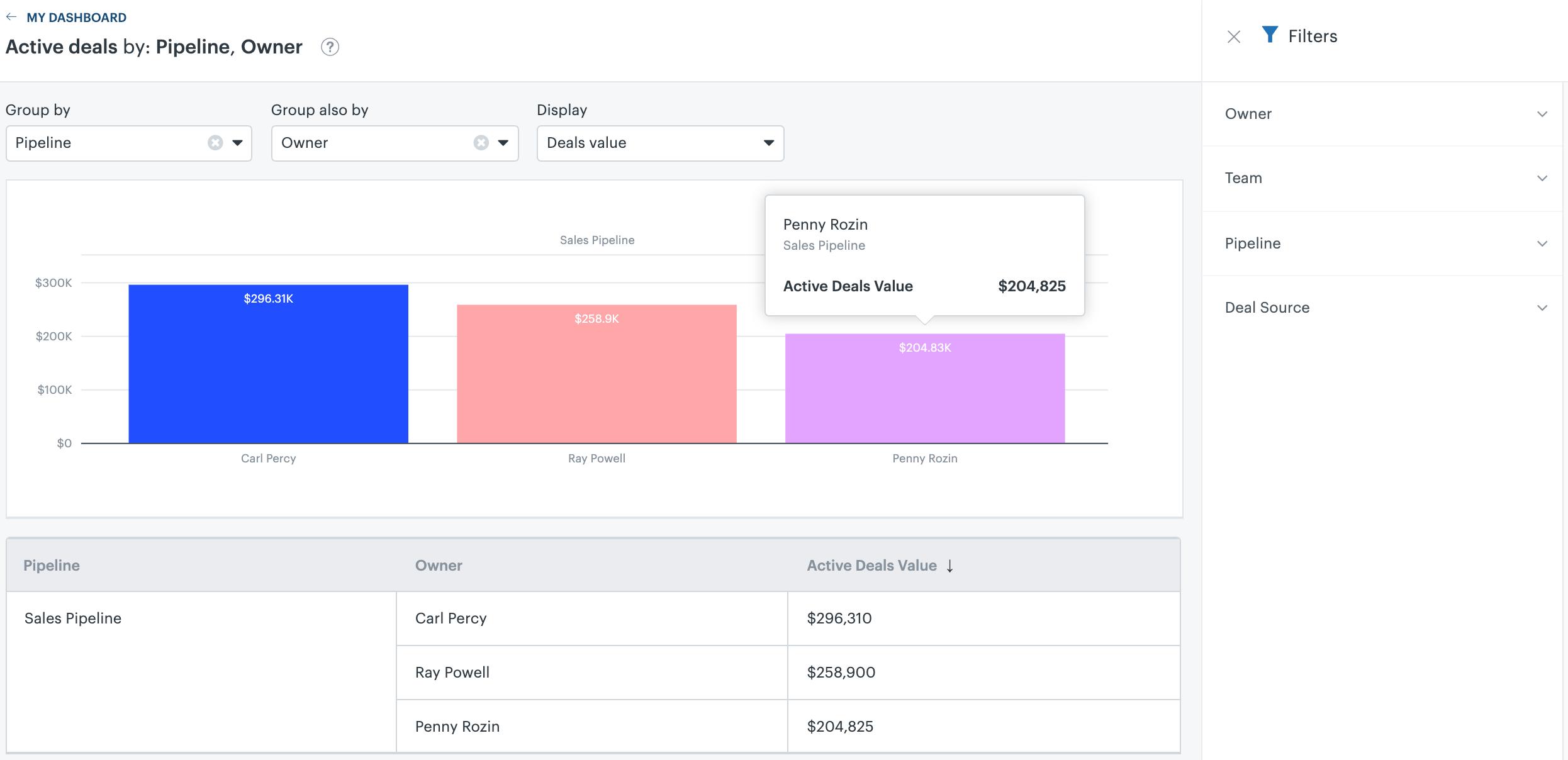







Best for Sales Teams: Zendesk Sell
See more : The Best Client Management Software for Small Business in 2023
Zendesk Sell is the sales-focused option through Zendesk. It offers a competitive option for the HubSpot Sales Hub, and this is largely due to the price at which you get access to the advanced features. While Zendesk Sell doesn’t offer as much when it comes to lead capture, you get access to advanced reporting tools and lead scoring at a reasonable price point ($49 per user, per month with Zendesk, compared to $90 per user, per month with HubSpot).
On top of that, security is important when it comes to sales, and Zendesk offers a better platform in that regard as well, offering single sign-on functionality and IP restriction across all of its plans. This makes it one of the best CRM for sales on the market today.
Best for Marketing Teams: HubSpot Free
There’s no denying that free plans are attractive for small businesses, but this one is actually worth taking a look at. HubSpot offers a robust, free plan that comes with a lot of marketing features and literally costs no money – forever. You’ll get email, content, and paid marketing functionality with this tier, along with a few custom dashboards, limited team infrastructure features, and plenty of integrations.
Conversely, Zendesk has no marketing plan or features whatsoever, so this is an easy victory for HubSpot. We’d still highly recommending check it out, as it’s one of the best CRM for marketing out there.
How do Zendesk and HubSpot compare to other CRM providers?
Zendesk and HubSpot are great, but they obviously aren’t the only CRM providers on the market. If you don’t think either of these options are the right fit for your business, take a look at the table below to discover some other competitive HubSpot and Zendesk alternatives.
monday.com – starting at $8 per user, per month
If you’re looking for low cost and high customizability, monday.com is 100% your best option. This project management software turned CRM allows for a lot of flexibility for small businesses at a cost that is friendly to everyone. It’s worth noting you’ll have a minimum of three users, so the monthly price will be no lower than $24 per month for the lowest tier, which is still an excellent deal.
Our research shows that the best monday.com for small businesses is the Pro plan, which costs $16 per user, per month, but adds a lot more functionality for the comparably small increase in price. The same minimum user limit applies, though, so the price will be a bit higher on a monthly basis.
Check out our monday.com CRM review and pricing guide for more information.
Freshsales – starting at $15 per user per month
If you need an affordable CRM like Zendesk, and has marketing capabilities, Freshsales could you be your best bet. It offers a wide range of features across all three major industries — sales, marketing, and customer support — so you can address all aspects of your business. The Freshsales Suite platform is able to handle the needs of small businesses as well.
How did we compare Zendesk and HubSpot?
We do a lot of research here at Duanetoops, and we’ve particularly looked into a lot of CRM providers to rate and rank them in a comprehensive way. Zendesk and HubSpot, along with a wide range of other options, were thoroughly tested to ensure you have the most accurate and helpful information about which CRM to choose. Here’s how we compared them:
- Price – Understanding how much a CRM costs is one of the most important ways to decide whether or not software is a good fit.
- Features – The size of the feature catalog will directly impact how your business interacts with the CRM.
- Help & support – New software can be tricky, which is why knowing how responsive customer support is will influence your decision.
- Customer score – This is an aggregate score of review sites and app rankings, so you know how actual customers feel.
For more information, check out our research guide to deepen your understand of how we rate and rank these business software providers.
That’s a wrap on “ Zendesk vs HubSpot – Price and Features Comparison ” We hope you’ve found a trove of useful insights and fresh perspectives. Your opinions and ideas matter to us—join the conversation below and share your take! Hungry for more tech insights? Dive into our diverse collection of articles where innovation meets practicality. Discover More CRM Softwares.
Stay in the loop with the latest in AI and tech – your journey into the digital future continues at duanetoops.com.
#Zendesk #HubSpot #Price #Features #Comparison
Source: https://duanetoops.com
Category: CRM
